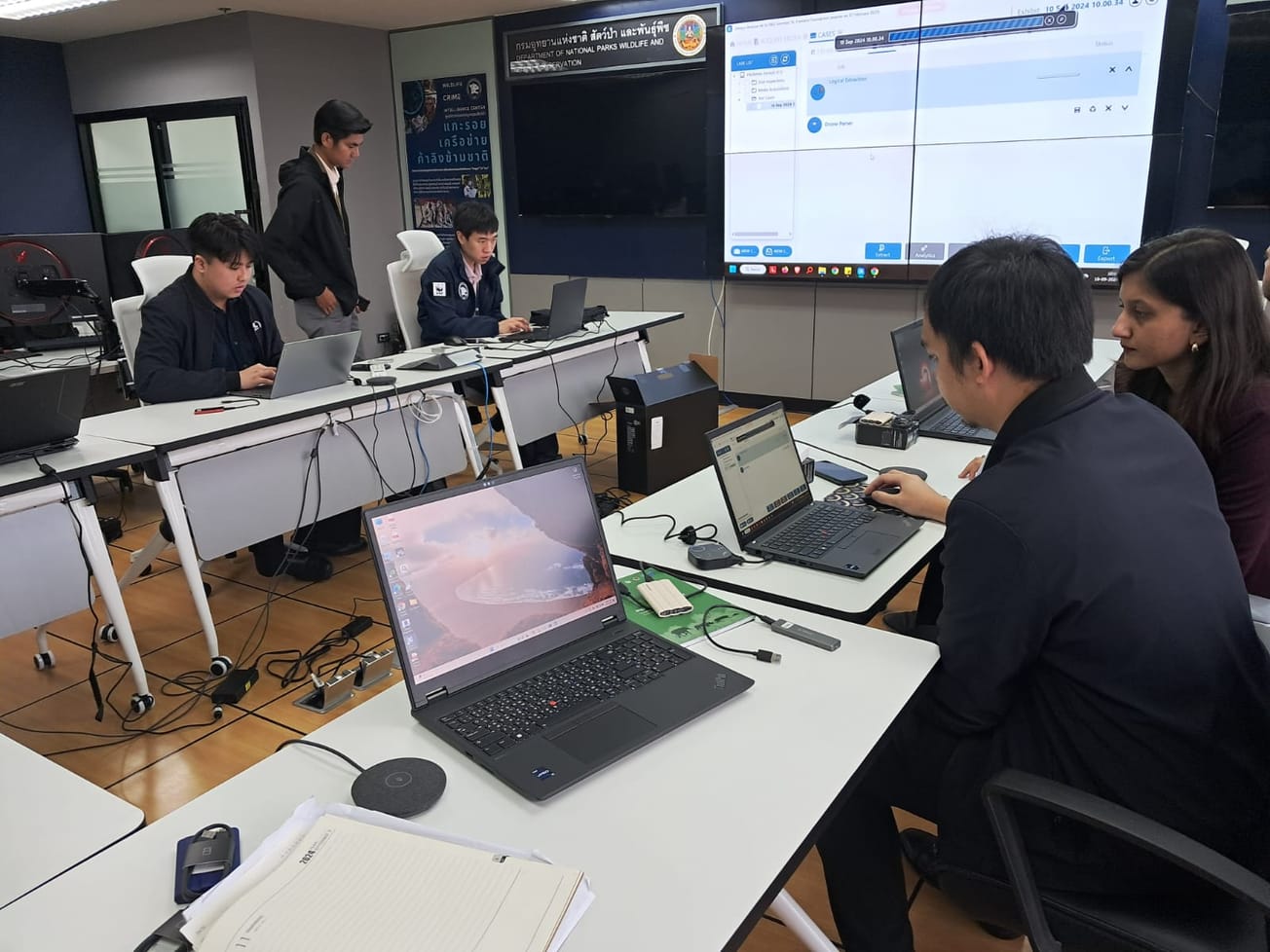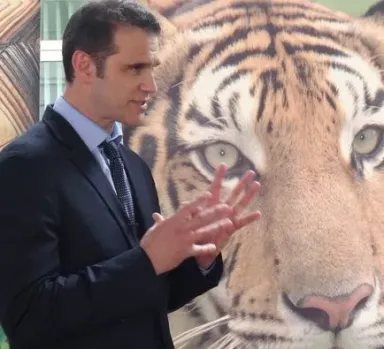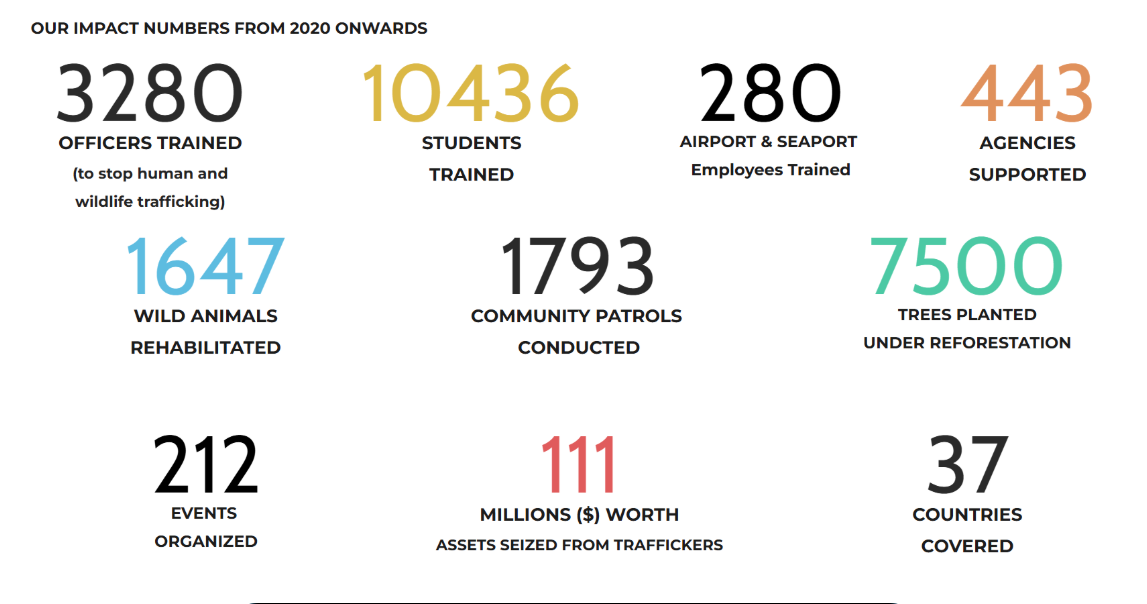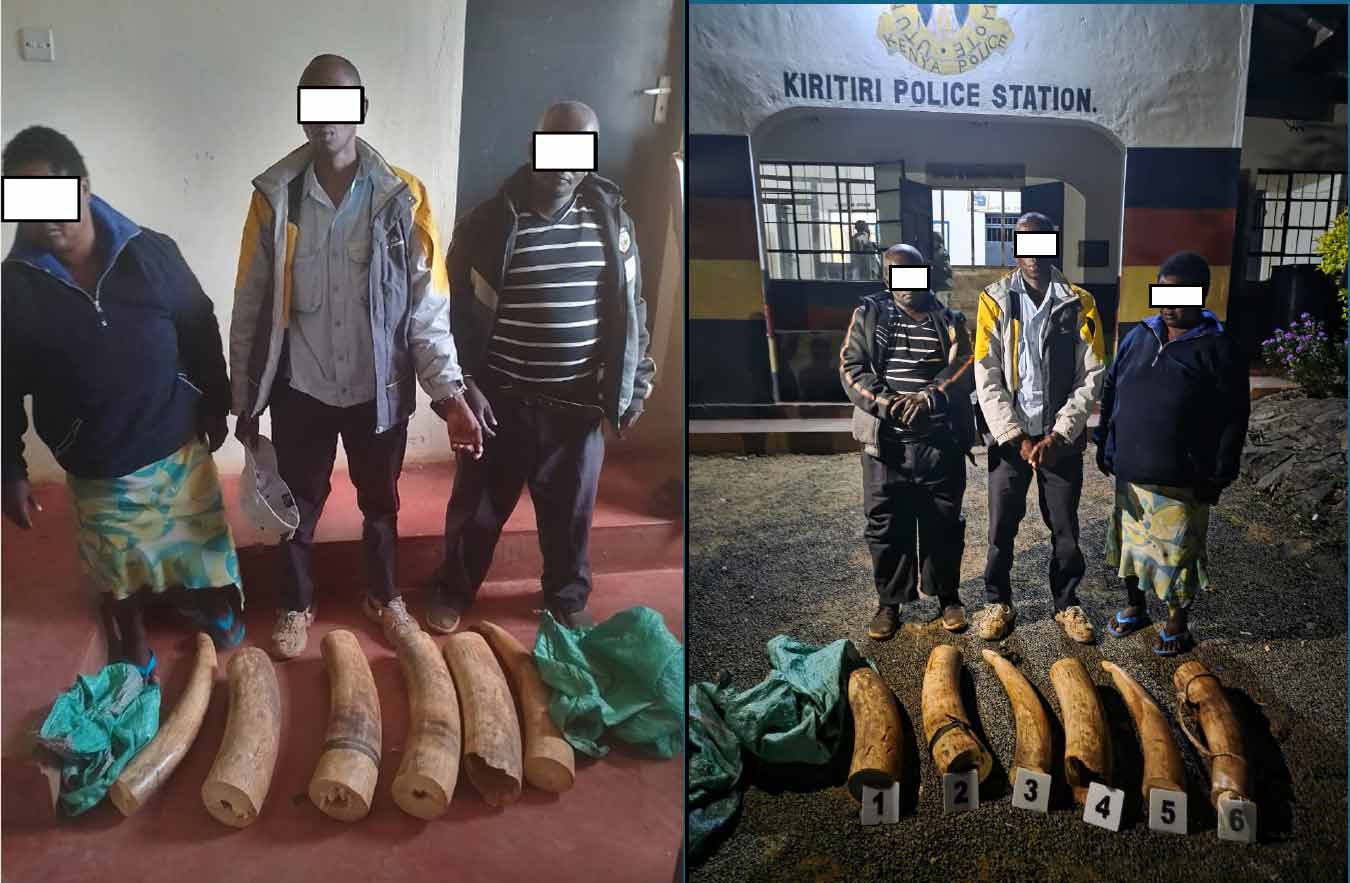(Bangkok) – Sixteen agencies from Thailand and Laos are set to collaborate in the fight against wildlife trafficking, after concluding a specialized joint training recently near a border hotspot where organized crime syndicates have illegally transported large volumes of wild animals, including their body parts, including tigers, rhinos, lions, pangolins and elephants.
Participants reported that the training, known as “CTOC” was especially useful because it used fictitious syndicates based on real life characters and businesses, and included technology and training that will help them track and arrest the real culprits.
The week-long ”Counter-Transnational Organized Crime” training course was held in Nakhon Phanom, Thailand, September 2-6, sponsored by the US State Department, Bureau of International Narcotics and Law Enforcement Affairs (INL), and was organized and delivered by Freeland, in partnership with the Southeast Asia Police Chief Network (ASEANAPOL), Detego and the International Wildlife Trust.
Instructors included former law enforcement officers from 5 countries, as well as digital forensics experts from Detego Global. Instructors helped participants navigate through and solve a complex case based on data obtained from real life wildlife criminals.
Thai and Lao officers have witnessed and tracked some of the world’s top wildlife traffickers, including the infamous “Hydra” syndicate, which is responsible for the illegal killings of thousands of endangered animals and trees from Asia and Africa over the past 2 decades. Seven Hydra members have been arrested, and over $50 million in their assets have been seized or frozen. However, some of its leading culprits remain at large.
CTOC was designed by Freeland to network and capacitate agencies to illuminate and dismantle criminal supply chains.
The course was followed this week by the delivery of award-winning Detego digital forensics technology to the new Wildlife Intelligence Center of Thailand, hosted by the country’s Department of National Parks (DNP). Freeland and Detego Global, in partnership with ASEANAPOL, will be delivering the same technology and training to law enforcers in Malaysia and Vietnam in the near future.
“Detego technology will help enforcers gather comprehensive intelligence on organized wildlife crime rings, which have historically had an edge over enforcers,” said Freeland Founder, Steven Galster. “The crooks have often been better networked and resourced, but CTOC and Detego will power new task forces to even the score, giving endangered wildlife a chance.”
Inspired and skilled up by the CTOC course, one trainee went immediately to work, chasing a lead and arresting a trafficker who had moved 1.4 tons of pangolins (scaley anteaters, the most heavily trafficked mammal in the world) through northeast Thailand in the direction of Laos. The arresting officer and his new task force cohorts are now planning on using their new technology to analyze the case details to expand the scope of the case and prevent more targeting of pangolins and other animals.
For more information: info@freeland.org
About Freeland
Freeland is a frontline counter-trafficking organization working for a world that is free of wildlife trafficking and human slavery. Our team of law enforcement, development and communications specialists work alongside partners in Asia, Africa and the Americas to build capacity, raise awareness, strengthen networks and promote good governance to protect critical ecosystems and vulnerable people. Freeland runs the "TRIPOD-2" project for Southeast Asia that is sponsored by US State Department/INL.













